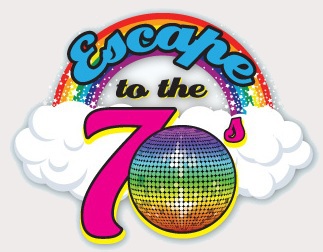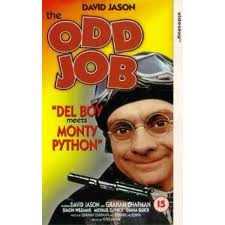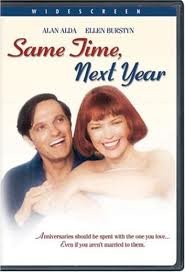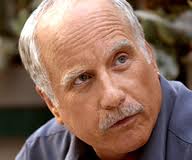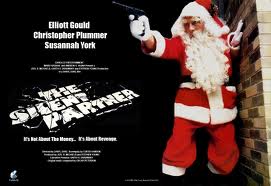Looking for Mr Goodbar
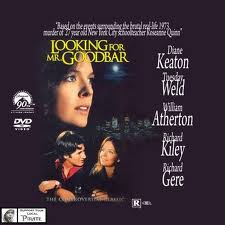 Richard Brooks talks to Colin Dangaard about his most scorching movie so far.
Richard Brooks talks to Colin Dangaard about his most scorching movie so far.
While Diane Keaton is up there taking off her clothes to strains of Bach, it’s really the director Richard Brooks who finally stands naked in looking for Mr Goodbar.
At 65, he has put it all on the line.
To secure complete creative control from Paramount Studios, for whom he made the film, he took a minimum directors fee plus percentage and, for these and other reasons, he was forced to sell his home. And because he has moved like a vacuum cleaner across two years of time, sucking up every last minute for the project, his family could be coming apart; Jean Simmons, his wife of 17 years, has moved to a new home in Connecticut. Brooks will go where his next movie takes him.
“Maybe my priorities are all wrong,” says Brooks, looking a little tired.
“Maybe when I die, they will put on my tombstone, he was too busy.”
“Is it worth it, I ask myself? Maybe they’ll put all my work in a peanut and throw it away. But my work is all I’ve got. To me it’s the most important thing in my life which does not mean it’s good.”
Brooks’ record might prove to the contrary. Movies like In cold blood; The Professionals; Elmer Gantry and, much earlier, Cat On a Hot Tin Roof and The Blackboard Jungle.
Yet here he is, on top of his craft, riding one of the movie’s hottest releases this year.
He called his entire life into question and took The Big Gamble.
Looking for Mr Goodbar, of course, is Judith Rossner’s raunchy race through the singles scene; the story of a girl who hunts men for sex.
Producer Freddie Fields secured the novel and, after it was turned down by directors Roman Polanski, Mike Nichols and Sydney Pollack, turned it over to Brooks.
The choice at first seemed strange, Brooks having established himself as an action adventure man. But then he “accepted the challenge” of saying something about young people today, and their “lack of commitment.”
Seeking the ”magical key” that made the novel such a hot seller, Brooks personally interviewed some 600 women who had read the work.
“While they didn’t all tell me the same story,” he says,” something about it touched them, triggering an identification with their own stories. I want the movie to do the same thing.
“Our version follows fairly closely Rossner’s story, and the problems of young women today, but there are differences. A book is not a film, after all. We have had to translate the words into images, and dramatise the things the book brings to mind.”
Still, Brooks’ heroin, played by Diane Keaton, is more romantic, warmer than Rossner’s brittle, bigoted broad stalking like a lion.
More than most directors, Brooks allows his characters to evolve, regarding the script as “a living, ever-changing thing.” Only when he looks into the minds of the players does he decide what can really come out of their mouths.
He is ecstatic with the performance turned in by Keaton, who reveals so much that Brooks is the first to admit his film will never see a television screen.
Fresh from the bouncy, witty, fully covered Annie Hall, opposite Woody Allen, Keaton here is a totally different number.
“Diane,”says Brooks,” is an extremely shy girl. She is retiring and modest, but inside she’s a pretty tough customer.”
The sex scenes are the most difficult, says Brooks, who traditionally works with a closed set, but routinely this was closed to most of the crew as well.
As is also his custom, Brooks was playing music on the stage the day Keaton was due for her first sexual encounter.
”She was adjusting herself and making psychological preparation,” he recalls, ”when she turned to me and said, ’that’s a lovely piece of music.’ I told it was a piece of Bach, and she said, ‘do you think we could play while we do the scene?’ “I thought it was a fine idea. She performs so marvellously that I decided to play a different piece of music every time one of the scenes came up, making it almost like an old-time movie.”
“It just happened to work for her. Diane is a remarkable woman in that she needs incentive and it must be real for her. She has to feel something, relate to something, and here she related to music. She lost herself in it, knowing she was protected, knowing she didn’t have to worry, people would come peeping around….”
There is no explicit sex in the movie, as a director, Brooks claims to have neither the’ feeling’ nor the’ talent’ for making such films. “If anything, ”he says, ”this is sensual, not sexual. But it still had to look like the real thing.”
While much flesh flashes, Paramount reacted positively, says Brooks, with no encroachment on his artistic control. Keaton also had no control over what ended up on the final print, though contract prohibits the making of stills from “sexually suggestive” frames of the film. To make her work even easier, Brooks hired a female still photographer, but dismissed even her for the lovemaking scenes.
“Diane just had to trust me,” says Brooks.
Keaton’s risk is also financial, as well as artistic. She agreed to ‘about one third her usual salary,’ or some $50,000 according to Brooks, along with points of profit. But in the final analysis, nobody is putting up more than Richard Brooks….And the future?
“Who knows? Is there a career for me after this? Will the public and the press buy my work on Mr Goodbar?
“When people go before a camera and take of some of their clothes, they feel they have removed some of their personality. They reveal themselves. And that can be embarrassing.
Well, I’m up there myself now. I’m naked. Because this movie is what I feel about this segment of life today, and about these particular people. So, yes I am on the line.”
